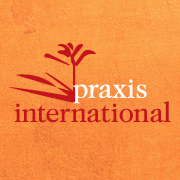Figuring out the distinct and complementary roles of community-based advocates and victim-witness specialists (or victim-witness advocate or coordinator, law enforcement advocate, or county advocate) is an important aspect of implementing AIR. Both focus their attention on the needs of survivors, but they have critically different contexts for their work. Victim-witness specialists’ job is to help survivors know their rights and navigate the criminal legal system; they can streamline communication within the system and quickly access system-generated resources. However, their primary role is to support the prosecution of the criminal case, not to be an independent advocate for the survivor. Survivors need to understand from the outset that because they are connected with the prosecutor’s office (or in some cases, law enforcement) the communication victim-witness specialists have with survivors is not confidential, cannot be withheld from the prosecutor, and is likely to be shared with the defense and therefore the offender.
Unlike victim-witness specialists, community-based advocates are not limited to advocacy within the criminal legal system. They work with survivors of domestic violence when a crime is not reported to or charged by the criminal legal system. For most advocates, information shared by the survivor may not be shared with anyone outside of the agency because the advocate has ethical or legal authority not to share any information without express permission and informed consent from the survivor. In some jurisdictions, community-based advocates have privilege, much like attorneys, which means if the advocate or program is subpoenaed, they cannot be required to reveal information about the survivor. In other jurisdictions, advocates have a confidential relationship with survivors, which means they will protect the survivor’s information, but may be required to share information requested by higher authorities.
Some criminal legal system practitioners have a hard time understanding why community-based advocacy is needed when they have victim-witness specialists. There may be a misunderstanding or misinterpretation of the privilege or confidentiality differences between them. They can be reluctant to engage in AIR, seeing it as a redundant service. Clarifying the need for confidential advocacy services can help build support for AIR.
Confidential advocacy strengthens:
- Survivor Safety: Survivors’ lives may depend on their secrets being kept: they may be in hiding so their batterer does not know where to find them and their children; they may be thinking about ending the relationship; they may not want the offender to know they shared details about their relationship, the batterer may be threating retaliation, including immigration related threats, if the survivor seeks help to end the abuse; among many other pieces of information they wish to keep private. Survivors and their children may be in increased danger if the batterer finds out this type of information. A community-based advocate can help survivors to know what kind of information the batterer could have access to depending on with whom it is shared.
- Survivor Autonomy: Survivor-centered advocacy requires that survivors determine what happens with their lives, their information, and, therefore, the services they receive. Survivors reestablish autonomy as they regain control of their lives and their story, including control of who knows their secrets. Disclosure of confidential information with a batterer can derail a survivors’ control of:
- custody, child welfare, immigration, and criminal cases
- employment, school, or housing
- reputation and relationships in the community
- Survivor Recovery: Survivors are more likely to continue to access advocacy and services if they trust their information is safe. When information a survivor expects is private is shared with the batterer, their recovery can stall because they may be re-traumatized, or worse, his violence may escalate.
- Community Trust: Community members know who keeps secrets and who reveals them. Survivors in need of help will not come to a service provider with sensitive information if that service provider is known for divulging confidential information.
Contact us for a sample working agreement between the community-based advocacy program and victim-witness services to clarify the distinct and important roles each program plays in the community.
